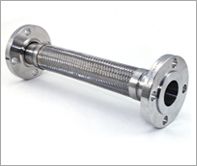Smart warehouse managers spot the warning signs early: evasive safety discussions, mysterious customer references, high-pressure sales tactics, confusing warranty terms, distant service locations, and inflexible product offerings. These patterns predict that there will be future service problems and equipment failures.
Most warehouse disasters start with a bad supplier choice. You know the feeling—everything seems fine until your forklift breaks down during peak season, and nobody answers the supplier’s phone.
Been there? You’re not alone. Finding a reliable material handling equipment supplier becomes a nightmare when you realize half of them disappear after they cash your check. The other half stick around but can’t deliver what they promised.
They Get Weird About Safety Questions
Here’s something strange I’ve noticed. Ask a supplier about their safety record and watch what happens next.
Good suppliers light up. They start pulling out certificates, showing off their testing facilities, maybe even boring you with compliance stories. They’ll explain their biomechanical stress analysis studies and how they prevent workplace injuries. Bad suppliers? They mumble something about “industry standards” and quickly change topic.
Why would anyone avoid talking about safety unless they’re cutting corners?
Their Customer List Looks Suspicious
“We work with Fortune 500 companies” sounds impressive until you ask for specifics. Then comes the backpedaling.
Real suppliers hand over contact information without hesitation. They’re proud of their client relationships. Sketchy ones give you generic testimonials that could have been written by anyone.
Try this test: ask for three recent customers you can call. Watch how fast they make excuses.
They Act Like Used Car Salespeople
Nothing screams “avoid me” like artificial urgency. Quality equipment suppliers understand you need time to evaluate major purchases.
“Special pricing ends tonight” is manipulation, not business. Professional suppliers know warehouse managers need approvals, budget discussions, and site evaluations.
Desperation tactics reveal financial problems or inferior products. Either way, you lose.
Their Warranty Reads Like Legal Gibberish
Warranties should be straightforward. When suppliers hide behind complex language, they’re planning escape routes.
What happens when your conveyor belt fails? Who covers the repair costs? How long will you wait for replacement parts? Quality suppliers back their warranties with detailed material fatigue testing protocols that predict equipment lifespan.
If they can’t explain their warranty in plain English, imagine trying to get help when something breaks.
They Have No Local Presence
Distance kills service relationships. A supplier located across the country might offer attractive prices, but you’ll regret it during an emergency.
Equipment fails at the worst possible moments: Friday afternoons, holiday weekends, right before major shipments. You need technicians who can reach you quickly, not someone who needs to book flights.
They Only Sell Cookie-Cutter Solutions
Every warehouse has different requirements. Ceiling heights, floor conditions, weight capacities, and space constraints—these factors matter.
Suppliers who push standard configurations don’t understand your business. They’ll sell you equipment that almost works, leaving you to figure out the problems later.
Cookie-cutter solutions create custom headaches.
Don’t Let Desperation Cloud Your Judgment
The pressure to fix equipment problems quickly can make any supplier look appealing. But rushing into partnerships with questionable suppliers costs more than delays ever will.
Take time to verify safety records. Call those references. Ask tough questions about warranties and service support. Push back against high-pressure tactics.
Your warehouse operations depend on reliable equipment and trustworthy suppliers. The extra effort spent vetting suppliers now saves countless headaches later. Trust your instincts—if something feels off during the sales process, it probably is.
Featured Image Source: https://img.freepik.com/free-photo/load-carrier-with-wheels_1161-208.jpg






